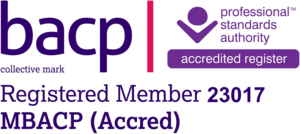You are the embodiment of the information you choose to accept and act upon. To change your circumstances you need to change your thinking and subsequent action. William Arthur Ward
Counselling & Psychotherapy
Counselling & Psychotherapy are umbrella terms that cover a range of talking therapies. They are delivered by trained practitioners who work with people over a short or long term period to help them bring about effective change or enhance their well being.
Counselling & Psychotherapy is a process that helps people sort out issues and reach decisions which will effect positive change in their life.
Contrary to common belief, counselling is not about advice giving. It involves using communication skills in such a way that helps people solve problems and helps create conditions that will cause the person to understand and/or improve their behaviour, character, values or life circumstances.
Often counselling & psychotherapy is sought out at times of change or crisis, however counselling can be sought at any stage of life.
Clients usually find counselling liberating.
Person Centred Counselling
The basic concept of person centred counselling is that the counsellor is not the expert and that the client knows what hurts and which direction to take.
It is the client who is the best authority of their experience and therefore best able to achieve their own potential for growth and problem solving.
The role of the person centred counsellor is to provide the best conditions where this can happen.
By applying these conditions: congruence (genuineness), unconditional positive regard (acceptance, respect, warmth), and empathy (understanding & awareness from clients' perspective) working in the here & now the counsellor facilitates change and growth within clients, helping them develop inner trust and resources necessary to bring about change.
Psychodynamic Counselling
The basic concept of the psychodynamic approach is that once we hold repressed feelings and thoughts, then they will continue to have an affect on our lives. Therefore the unconscious processes remain at the heart and focus of the work.
Clients are encouraged to talk about past experiences, childhood relationships with parents and significant people from childhood, in order to determine how past events and feelings are effecting current beliefs and behaviour.
By revealing the unconscious content of clients psyche the aim is to alleviate psyche tension.
Cognitive Behavioural Therapy (CBT)
The focus of CBT is bringing awareness to thinking, assumptions, beliefs and how they affect behaviour.
By making the connection between how our thoughts affect our behaviour we can challenge the negative beliefs we hold about ourselves and the world we live in, which are often triggered by events and situations in our lives.
Therefore, it is usually not so much the problems we face that causes us distress and pain but more the meaning we give to them.
Hence why reactions to problems differ from person to person.
As well as the mental focus CBT is structured, the sessions will usually incorporate a set agenda i.e. reviewing and setting homework.
EMDR
When a distressing event occurs which is traumatic, often the experience is too difficult to process/work through and so it remains a current problem, which means the emotions, physical sensation and or thoughts are re- experienced through flashbacks or triggers (reminders of the experience/s).
The basic concept of EMDR is to help people process/work through distressing traumatic memories, which is to store the distressing event in the past as a memory.
EMDR stands for Eye Movement Desensitisation and Reprocessing and was developed by Dr Francine Shapiro an American psychologist. EMDR recreates a period of sleep called Rem sleep where the eyes move rapidly from side to side. During rem sleep (rapid eye movement) the brain processes information which helps us come to terms with difficult life experiences.
EMDR initially was focused on PTSD (Post traumatic stress disorder) but more recently has proved effective in other areas such as anxiety, depression, chronic pain, ocd, sexual abuse and with phobias.




